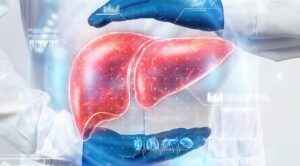Stomach cancer, also known as gastric cancer, is a serious condition that often goes undetected in its early stages due to subtle or absent symptoms. By the time signs appear, the disease may have already advanced, making treatment more complex. That’s why early detection, symptom awareness, and preventive care are essential for managing stomach cancer effectively.
In this article, we explore the common symptoms of stomach cancer, how it is diagnosed, staging, and evidence-based prevention tips. Whether you’re looking to reduce your risk or seeking early answers, this guide is for you.
What Is Stomach Cancer?
Stomach cancer begins when cells in the lining of the stomach grow abnormally. It can occur in any part of the stomach and may spread to other organs if not detected early. Several factors—such as H. pylori infection, poor diet, smoking, and genetics—can increase the risk of developing gastric cancer.
Early Symptoms of Stomach Cancer: What to Watch For
Most stomach cancer cases are diagnosed at a later stage because early symptoms are often vague. However, being aware of these warning signs may help you seek timely medical care:
- Unexplained weight loss
- Loss of appetite
- Persistent fatigue or weakness
- Nausea and vomiting
- Difficulty swallowing
- Feeling full quickly after eating small meals
- Bloating, gas, or indigestion
- Black or tarry stools
- Blood in vomit
- Abdominal pain or discomfort, especially above the navel
If these symptoms persist, consult a gastroenterologist for evaluation.
How Is Stomach Cancer Diagnosed?
Early and accurate diagnosis is key to successful treatment. Doctors may recommend the following tests:
1. Upper GI Endoscopy
A thin, flexible tube with a camera is inserted through the mouth to view the stomach lining and collect tissue samples (biopsy).
2. Endoscopic Ultrasound
This combines endoscopy with sound waves to assess how deeply the tumor has invaded and whether lymph nodes are involved.
3. Imaging Tests
- CT Scan
- MRI Scan
- Barium Swallow Test
- PET Scan
These help visualize tumors, identify spread, and plan the treatment approach.
4. Blood Tests
Blood work helps assess organ function and detect signs of cancer metastasis or anemia caused by internal bleeding.
5. Laparoscopy
When imaging isn’t enough, a minimally invasive procedure is performed to visually inspect abdominal organs and check for cancer spread.
Effective Ways to Prevent Stomach Cancer
While some risk factors (like family history) can’t be controlled, the following preventive strategies can significantly reduce your risk:
1. Maintain a Healthy Weight
Obesity is a known risk factor. Aim for regular exercise and a balanced, calorie-controlled diet.
2. Adopt a Cancer-Fighting Diet
- Increase intake of fruits, vegetables, and whole grains
- Limit consumption of red meat, processed meat, and pickled/smoked foods
- Avoid excessive salt, sugar, and fried foods
3. Quit Smoking
Tobacco use significantly raises the risk of stomach, throat, and lung cancers. Quitting is one of the most effective preventive steps you can take.
4. Moderate Alcohol Intake
Limit alcohol to reduce stomach lining irritation and cancer risk.
5. Treat H. Pylori Infections
Helicobacter pylori is a common bacteria that causes ulcers and is linked to gastric cancer. Early testing and treatment can lower cancer risk.
6. Stay Physically Active
Exercise at least 30 minutes daily, five days a week. It helps regulate metabolism and boosts immunity.
Stages of Stomach Cancer: Understanding the Progression
Stomach cancer is classified using either the TNM system or stage 0–4 scale:
- Stage 0: Abnormal cells in the stomach lining (high-grade dysplasia)
- Stage 1: Tumor limited to the inner layers of the stomach
- Stage 2: Cancer invades muscle layers and may affect nearby lymph nodes
- Stage 3: Cancer reaches the outer stomach wall and more lymph nodes
- Stage 4: Advanced cancer that has spread to other organs (metastatic)
Knowing the stage helps your doctor design the most effective treatment plan.
When to See a Stomach Cancer Specialist in Surat
If you’re experiencing digestive issues, unexplained weight loss, or any of the above symptoms, it’s important to seek expert care. Dr. Jay Chokshi at Gastro Surgery Surat specializes in the diagnosis and treatment of stomach cancer, offering advanced laparoscopic and surgical procedures.
Stomach Cancer Treatment Options
Depending on the stage and condition, treatment may include:
- Surgical removal of tumors or part of the stomach
- Chemotherapy or radiation therapy
- Targeted therapy to attack specific cancer cells
Each treatment is customized based on your health, cancer stage, and response to therapy.
Final Thoughts: Early Detection Can Save Lives
Stomach cancer is treatable—especially when diagnosed early. Don’t ignore persistent symptoms like bloating, nausea, or stomach pain. The sooner you act, the better the outcome.
If you’re in Gujarat and looking for the best stomach cancer doctor in Surat, schedule a consultation with Dr. Jay Chokshi at Gastro Surgery Surat. Early screening, timely intervention, and expert care can make all the difference.





